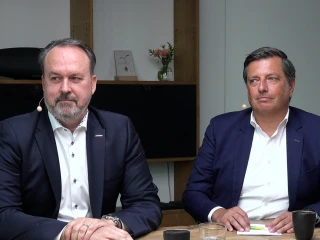
[Video] Sustainability: the leading role of data and digitalization
- IT
- finance
- SAP
- data
As the clock ticks on the climate crisis, organizations roll up their sleeves to put sustainability into practice. And they have no choice, says Ann Peeters from Agoria, Belgium’s federation for the tech industry: “Businesses that fail to engage in ESG may no longer be in business within 5 to 10 years.” The good news: investing in sustainability pays off! Still, a sustainable business is not built overnight. It’s a process. One of the keys to success – and to avoid the trap of ‘greenwashing’? Transparency and insights! In blog 3 of this series: how data and digitalization enable transparency and drive your sustainability performance.


/sustainability-banner-3200x500-(2).webp?mode=autocrop&w=320&h=240&attachmenthistoryguid=56455147-9a83-4bb2-9d3f-3bfdc159726a&v=&c=83fff48bfead5571ea55ed54661431a0e38dad0d9d9c1d73d3ee925b0c3fbbec)
/csr-banner-3200x500-(1).webp?mode=autocrop&w=320&h=240&attachmenthistoryguid=1e4d725c-6230-486d-b2bb-ec89f517aa5f&v=&focusX=2134&focusY=265&c=1ca43bba789069f5ef61d4605272e6573a704f40bab66c22976ea7b7396c93cd)